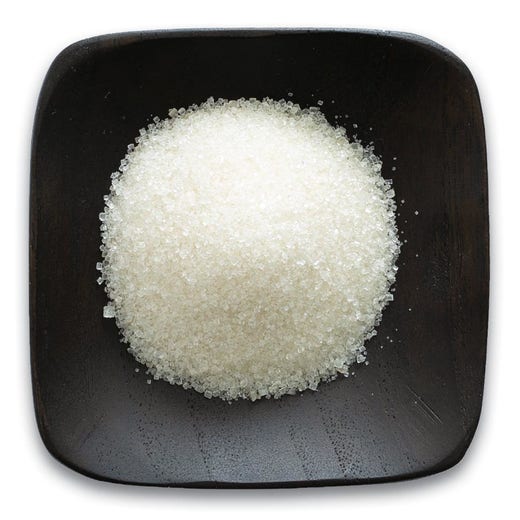The Trip of Cane Sugar Processing: From Harvest to Crystals
The Trip of Cane Sugar Processing: From Harvest to Crystals
Blog Article
A Detailed Overview of the Health and Economic Ramifications of Cane Sugar Handling on Neighborhood Neighborhoods
Walking cane sugar processing plays a critical role in shaping the financial landscape of neighborhood neighborhoods, using employment possibility and promoting secondary sectors. Nonetheless, the health ramifications connected with high sugar usage can not be forgotten, as they add to increasing rates of weight problems and diabetes mellitus. This nuanced vibrant welcomes an essential exam of exactly how communities can optimize economic gains while dealing with journalism health challenges they face. The exploration of instructional campaigns and lasting methods may just hold the key to fixing up these conflicting interests. What techniques might communities implement to achieve this equilibrium?
Economic Advantages of Walking Stick Sugar Processing
Walking stick sugar processing uses significant financial benefits that extend beyond the immediate farming field. The cultivation and handling of sugarcane develop numerous work possibilities, from farming to production and distribution. This work generation not only sustains neighborhood economic situations however also cultivates community growth by offering secure earnings resources for households.
Moreover, the sugar sector stimulates supplementary businesses, consisting of transportation, devices supply, and packaging solutions (Cane Sugar Processing). As these sectors expand, they contribute to an extra durable financial framework, improving total community durability. The export possibility of processed walking stick sugar further intensifies economic benefits, placing regions as competitive gamers in global markets
Financial investment in modern-day handling facilities can result in raised efficiency and performance, thereby minimizing waste and maximizing source usage. This change not just profits the local economic situation but also supports sustainability initiatives by minimizing environmental effects.
In addition, the revenue created from walking stick sugar handling can be reinvested in neighborhood framework, education, and medical care, promoting alternative neighborhood development. Overall, the economic benefits of walking stick sugar handling are complex, providing a foundation for withstanding prosperity in agricultural areas.
Wellness Threats Connected With Sugar Usage
Excessive sugar usage positions substantial wellness threats that call for significant focus. High consumption of sugarcoated, particularly from processed drinks and foods, has actually been connected to various health problems. One of one of the most pressing concerns is weight problems, as sweet diets add to an enhanced caloric consumption without supplying crucial nutrients. This unwanted can cause metabolic conditions, including type 2 diabetes mellitus, which has become progressively prevalent in both grownups and youngsters - Cane Sugar Processing.
Additionally, high sugar consumption is related to heart disease. Raised blood sugar levels can result in insulin resistance, a precursor to different heart-related issues. In addition, sugar can have detrimental effects on dental health and wellness, resulting in dental caries and gum condition, as bacteria in the mouth prosper on sugar, producing acids that deteriorate tooth enamel.
Moreover, arising research suggests a potential web link between high sugar usage and psychological health and wellness disorders, such as clinical depression and stress and anxiety. As areas come to grips with these health and wellness risks, it becomes crucial to promote understanding and urge healthier dietary selections. Attending to sugar intake is crucial not only for specific health yet additionally for the overall health of regional neighborhoods, highlighting the demand for extensive public wellness methods.
Environmental Impacts of Sugar Production
Often ignored in conversations regarding sugar's effects is the significant ecological impact of sugar production. The cultivation of sugarcane commonly demands comprehensive land usage, leading to deforestation, loss of biodiversity, and disruption of regional environments. The conversion of woodlands and marshes right into sugar haciendas can cause environment devastation, threatening many varieties and modifying eco-friendly equilibrium.
Additionally, sugar production is resource-intensive, consuming significant amounts of water for watering. This can result in deficiency of go to the website local water sources, negatively impacting both agricultural techniques and community accessibility to tidy water. Additionally, the use of chemical plant foods and pesticides in sugarcane farming can contribute to dirt deterioration and water pollution, as drainage from these chemicals goes into nearby rivers and lakes, influencing marine life and human health and wellness.
The environmental impact reaches the processing phase, where power usage and waste generation further aggravate eco-friendly issues. Air contamination from shedding sugarcane fields, together with greenhouse gas emissions, add to climate modification. Because of this, the ecological ramifications of sugar manufacturing warrant major factor to consider, advising stakeholders to take on more lasting practices to alleviate these adverse results on local communities and communities.
Work Development and Community Growth
The ecological difficulties positioned by sugar production are typically counterbalanced by its possibility for economic benefits, specifically in job development and community growth. The cane sugar market works as a substantial resource of employment in lots of backwoods, supplying work throughout various skill degrees, from farming labor to processing and distribution duties. This work not only sustains private households however likewise adds to the total financial vitality of local neighborhoods.
In addition, the facility of sugar processing centers stimulates ancillary services, such as transport solutions, equipment supply, and maintenance providers. As these companies prosper, they develop added work and bolster local economic situations. The revenue generated from the sugar market also brings about increased tax earnings, which can be reinvested into social work such as education, health care, and facilities growth.
Additionally, the sugar market commonly engages in area development campaigns, such as sustaining local schools and health programs, therefore boosting the high quality of life for residents. By cultivating solid community connections and promoting financial growth, the cane sugar processing sector plays a crucial role in uplifting neighborhood populaces, making it an essential part of lasting advancement methods in sugar-producing areas.
Harmonizing Wellness and Economic Growth
In navigating the intricacies of walking stick sugar handling, an important challenge hinges on balancing health factors to consider with financial development. The sugar sector significantly adds to address regional economic situations by creating jobs, promoting associated markets, and boosting tax revenues. However, the wellness implications connected with too much sugar consumption can result in chronic diseases such as weight problems, diabetic issues, and cardio problems, which can problem public health systems and lessen workforce efficiency.

Additionally, regulative frameworks can play a critical duty in directing industry practices in the direction of more lasting and health-conscious techniques. By fostering cooperation between federal government bodies, wellness organizations, and the sugar sector, areas can browse the dichotomy of wellness and economic development, guaranteeing that the advantages of walking stick sugar processing are equitably shared while focusing on public health and wellness.
Final Thought
To conclude, the handling of walking cane sugar offers both considerable economic benefits and noteworthy health dangers for regional communities. While it promotes task production and promotes local development, the affiliated health concerns, especially pertaining to excessive weight and diabetes mellitus, necessitate a careful harmonizing act. By advertising accountable intake and investing in area education and sustainable methods, it is feasible to maximize economic benefits while reducing adverse wellness impacts, consequently making certain a much healthier future for regional populations.
Furthermore, sugar can have destructive results on dental health and wellness, resulting in dental caries and gum tissue condition, as bacteria in the mouth grow on sugar, producing acids that wear down tooth enamel.
Dealing with sugar usage is essential not only for private health and wellness but also for the general well-being of neighborhood areas, highlighting the requirement for extensive public health methods.
Often ignored in discussions about sugar's effects is the substantial environmental effect of sugar manufacturing. The health and wellness implications linked with excessive sugar usage can lead to persistent illness such as obesity, diabetes, and cardiovascular problems, which can concern public health systems and reduce labor force efficiency.

Report this page